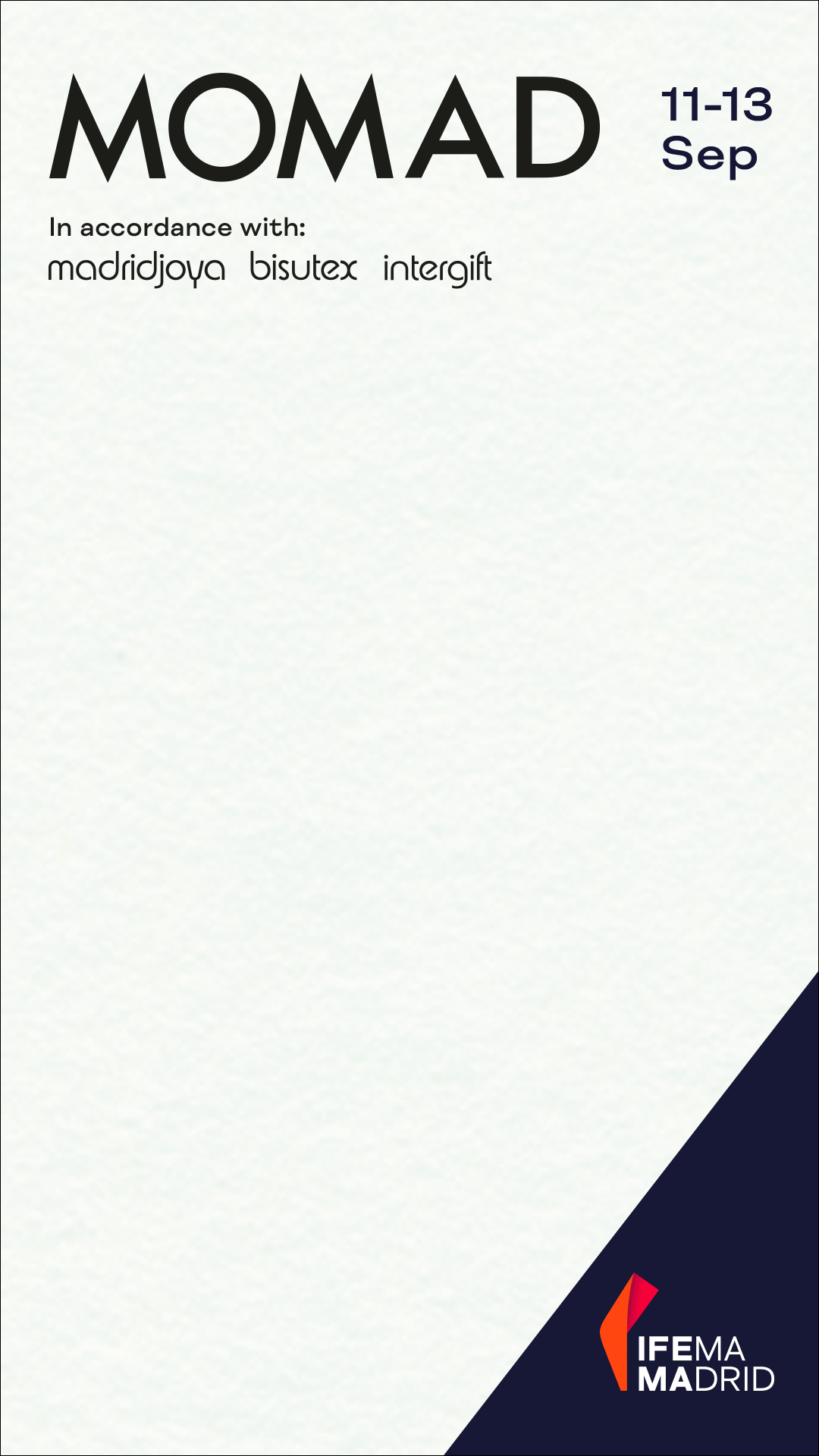
Looking For More Respectful Jeans? | Denim Première Vision
The dynamic, cosmopolitan event Denim Première Vision Berlin boasts a unique artistic richness and cultural diversity. It inspires the industry’s buyers and creatives in the denim industry and in the fashion field. There we found more transparent and respectful denim, in terms of both production methods and products. Keep on reading to know more about the denim of the future.
Aimed at all creative fashion brands with denim collections – fashion and luxury brands, pure jeanswear players– Denim by Premiere Vision Berlin presented a selective offer from 66 leading exhibitors from the global creative denim industry, from 14 countries, ready to partner and assist the creation and development of the Autumn-Winter 24-25 collections.
Exhibiting companies selected for their creativity, their ability to innovate, and their sustainable commitments aimed at providing a denim offer that is more transparent and respectful with the environment and people, in terms of both production methods and products: waste and wastewater re-treatment, monitoring and reduction of energy and water use, limitation of chemicals; new eco-designed and recyclable fibers and materials, recycling and upcycling techniques, state-of-the-art technology and more.
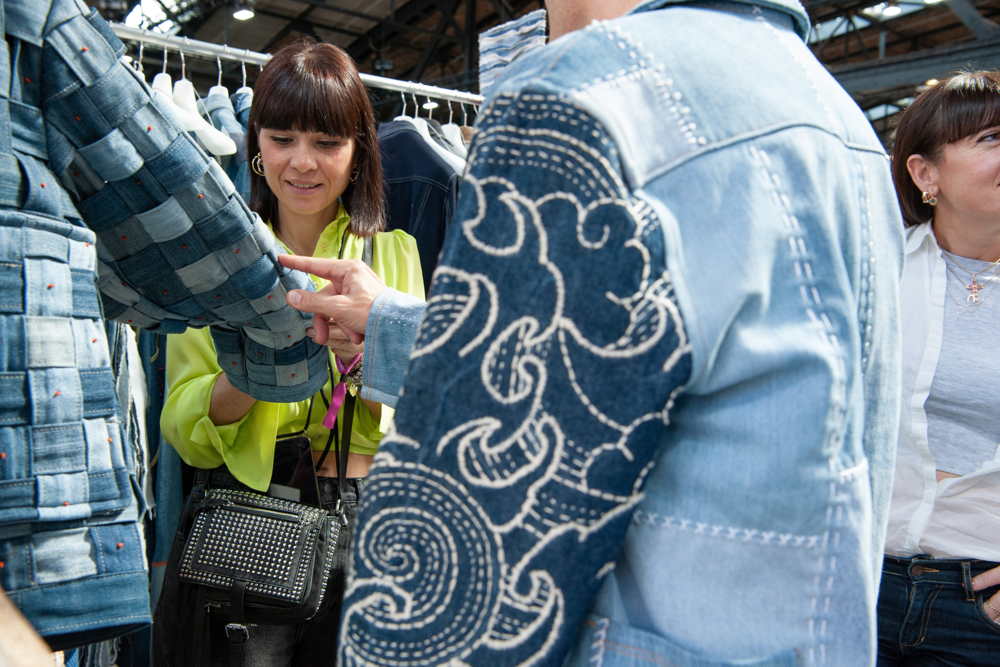
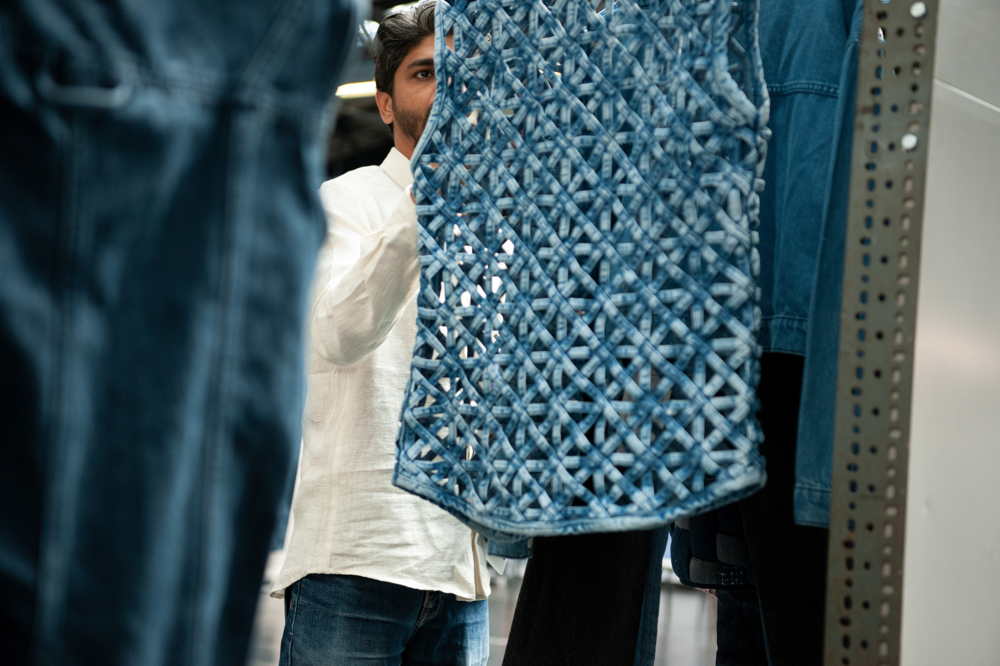
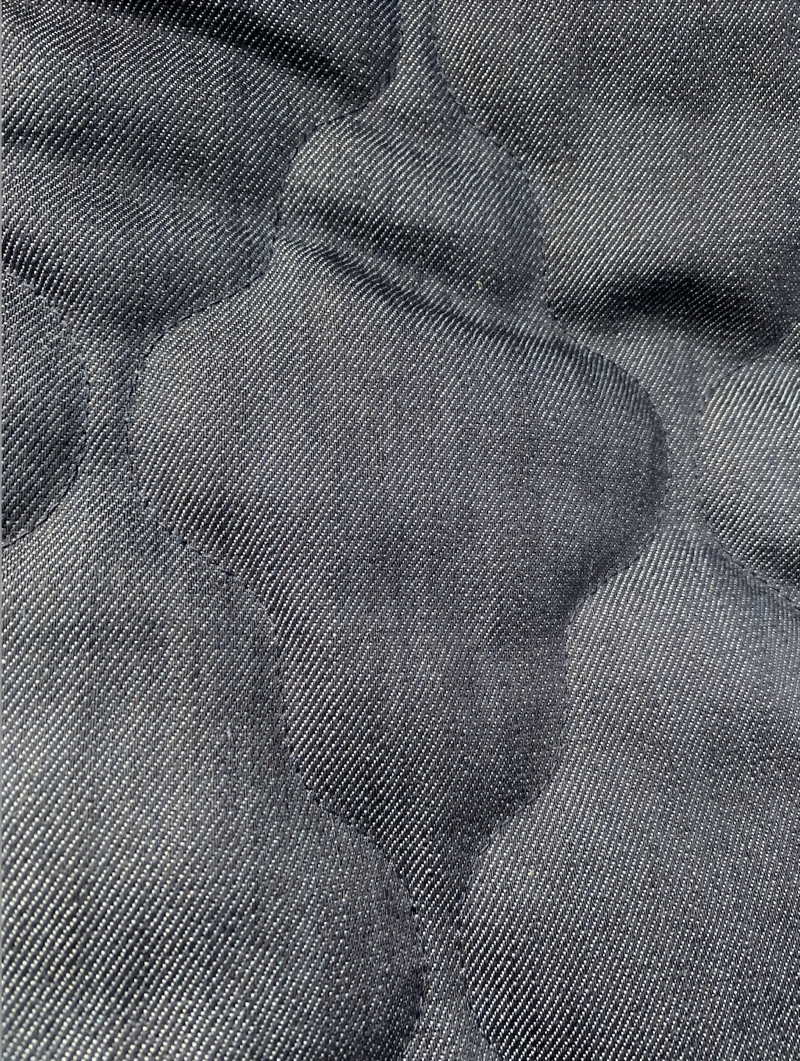
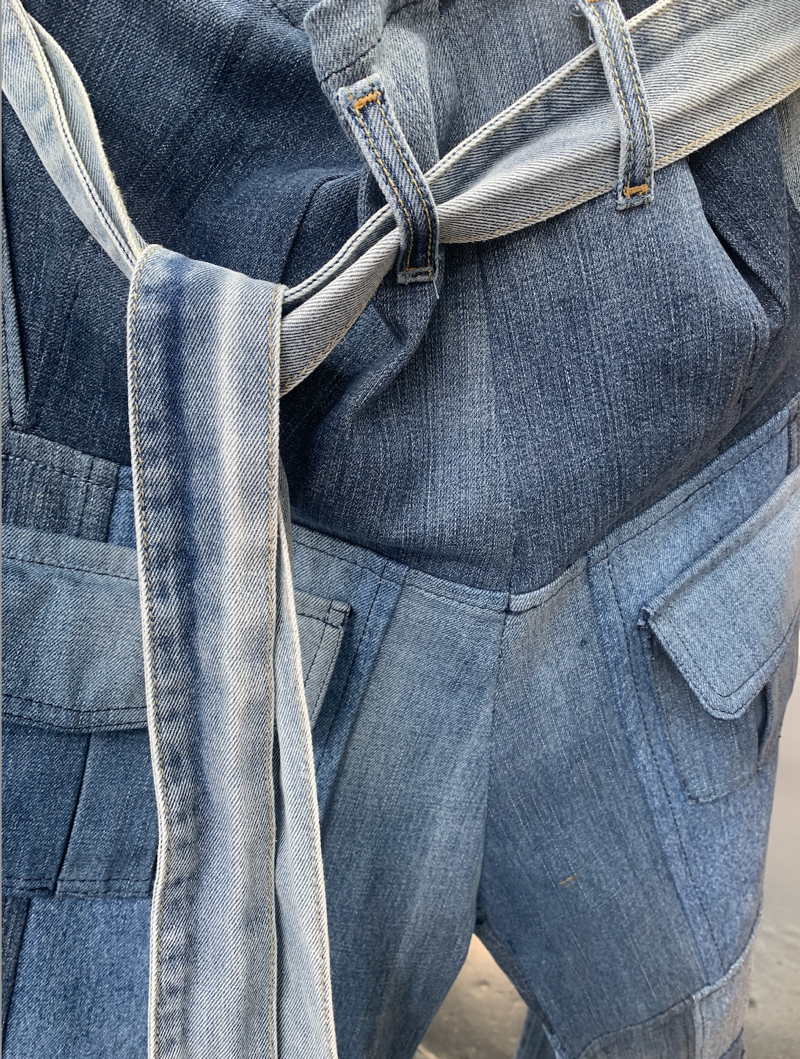
DENIM TRENDS AUTUMN-WINTER 24-25
The AW 24/25 denim season has a widely varied offer, and unrestricted experimentations. Leading denim designers are going for drama and strong contrasts; decorations and processes are simpler; complex silhouettes and 3D effects. It’s all about creating high impact through minimalist interventions. It is also important to create timeless and durable products through less polluting materials and practices that consume less energy, less water and fewer processes.
- There is an increase in organic cottons, in coexistence with other fibers or used in 100% compositions. The result is more sophisticated and high quality jeans.
- The supply of regenerative cotton is increasing. Regenerative farming aims at optimal carbon capture in the soil to address climate change. We have found it to be 100% or coexisting with other regenerative fibers such as hemp or flax.
- Hemp and flax continue to evolve, now becoming a more sophisticated option. New fibers are now emerging, such as kapok, jute and abaca, all of which are alternatives that need less water to grow.
- For denim elasticity, new alternatives to petroleum-based fibers are appearing, such as recycled or bio-sourced elastane.
- The focus on recycling is extreme. More and more collections are being created from pre-consumer or post-consumer cotton waste. This year they come with mono material and without dyes. Also, there are more pre-consumer recycled fibers, such as Circulose, created with fabrics from discarded collections or production waste.
- The diversification of fibers gives us a wide range of natural and undyed colors. The colors derived from mineral pigments stand out.
Attention is increasingly focused on more sustainable production. New traceability tools are more and more necessary to guarantee transparency right from the first steps of production. It’s also key to rethink the sourcing of raw material production. Greater attention is required in developing sustainable methods, such as local sourcing. Fiber alternatives to cotton remain a fundamental basis for developing alternatives with lower water consumption and more performance properties. Lastly, there’s an important increase in the focus on product quality. Durability increasingly underlines the need to focus on timelessness.

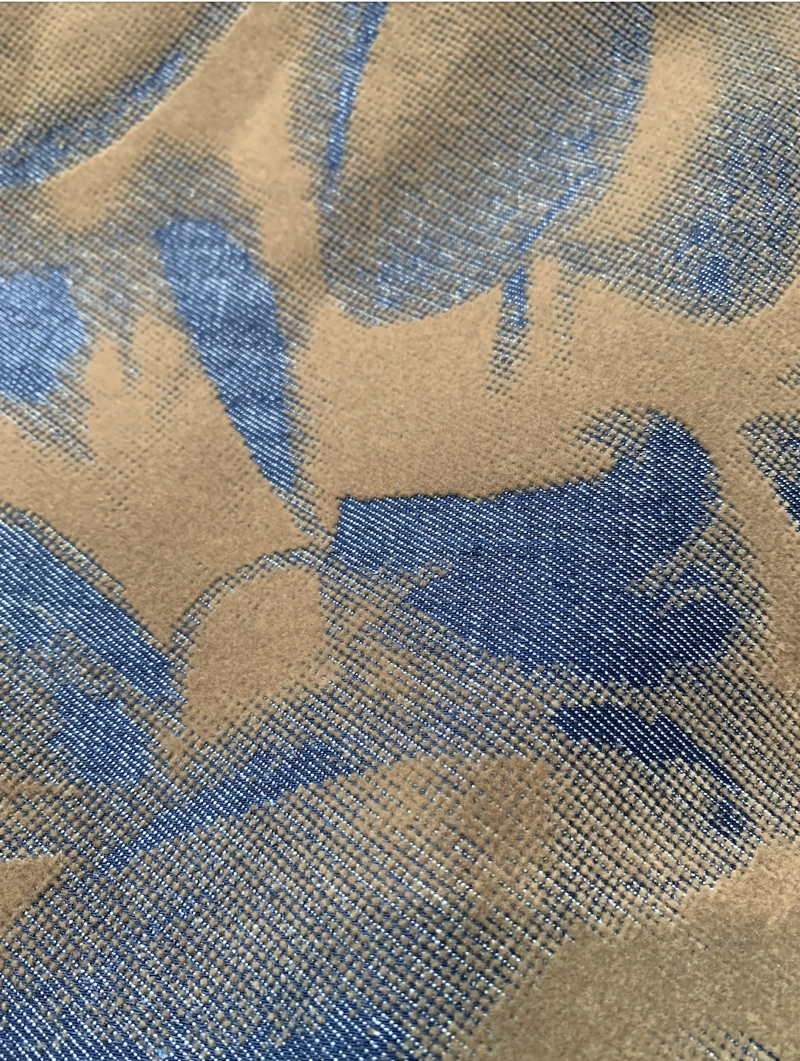

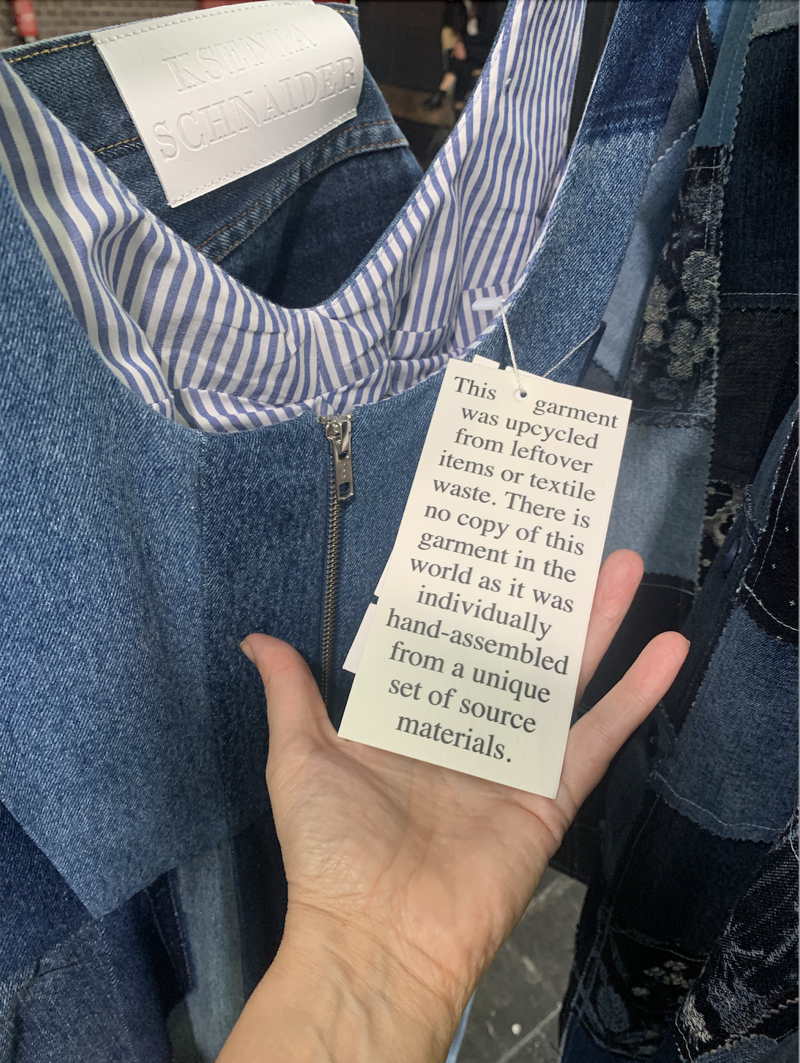

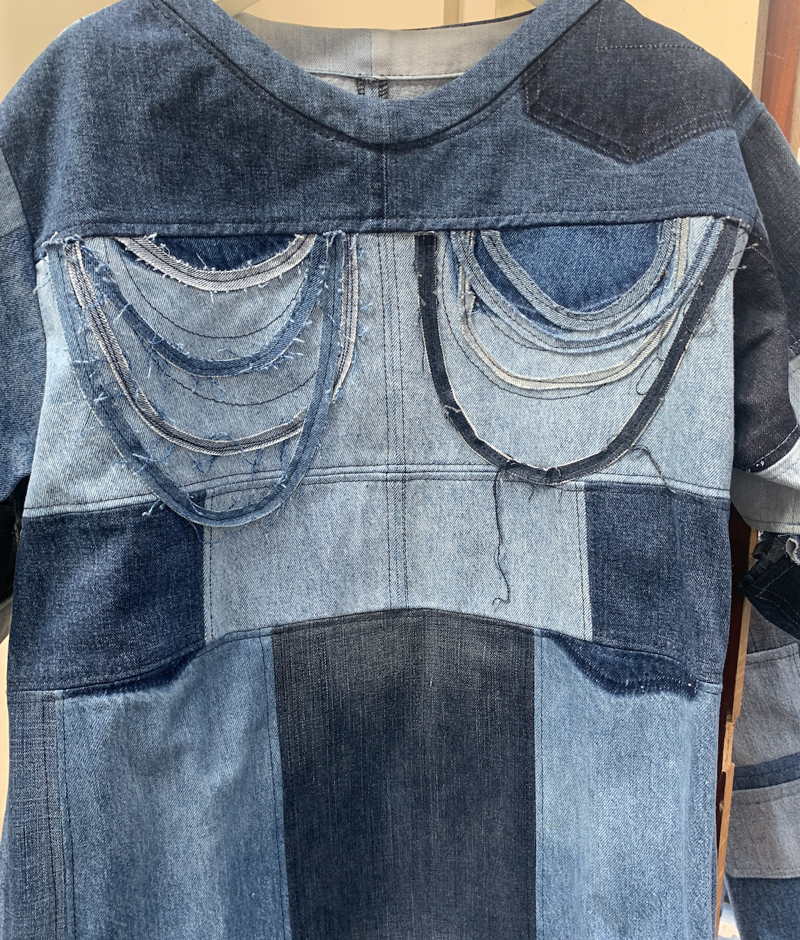
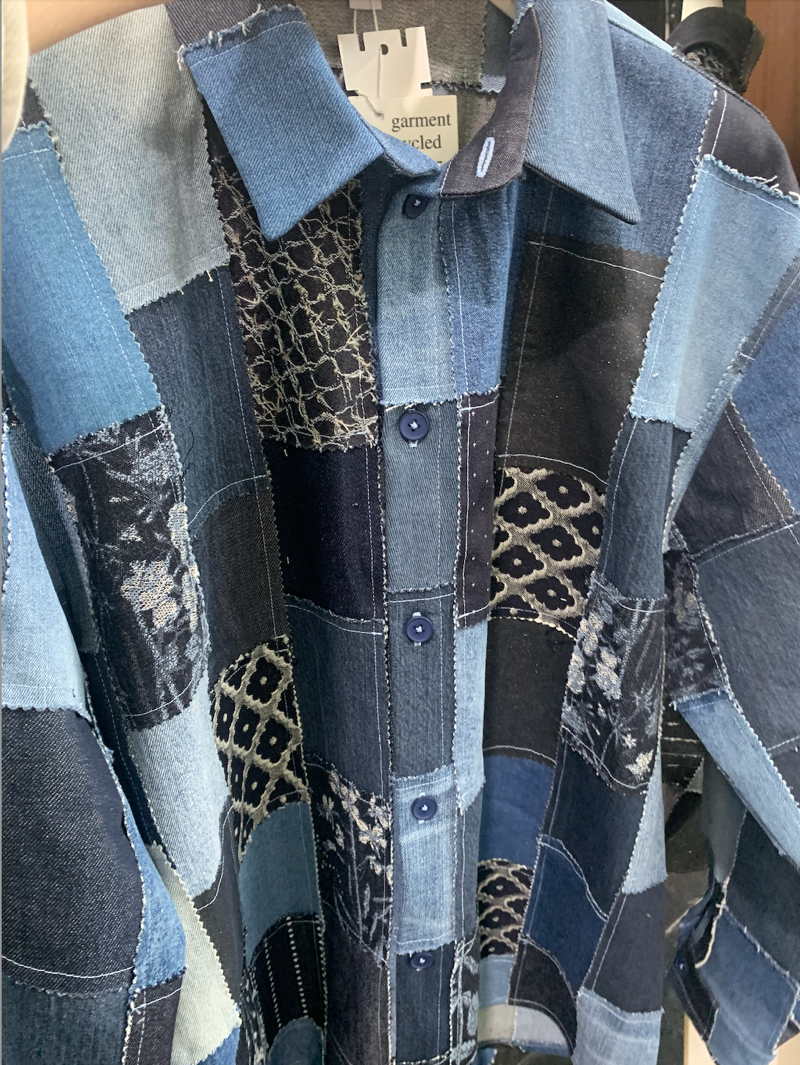

DENIM FASHION DISTRICT #3: PURE INSPIRATION
For the 3rd consecutive season, 15 ready-to-wear and accessories brands previewed their capsule collections created in partnership with show exhibitors. This season, the show was privileged to welcome a prestigious guest, Japanese designer Michiko Koshino, who presented a retrospective of her most iconic creations.
The production of a single pair of blue jeans consumes a tremendous amount of water, up to 10,000 liters if we consider farming of cotton and chemicals treatments of denim. To cut the addiction to new, some upcycling designers showed their collections to reuse, reduce and recycle. Among the upcycling labels, young designers, established brands and rising figures of denim present this edition are Ksenia Schnaider, Fade Out Label, 8Igb, The Sparkle Collection, Denzilpatrick, Tiia Maria Jaakkola, Kentroy Yearwood, Therapy Berlin, Stripes Of-F Road, Milena Andrade, Leon Emanuel Blank, Resap Paris, Common Parts, Regenes, and Daily Blue By Adriano Goldschmied.
We liked the Fade Out collection very much. Deconstructed and reassembled in Berlin since 2015, the designer talks about denim-couture, unisex collections and zero-waste. The brand has long been taking its place in the denim industry as one of the most creative in terms of upcycling (in fact, it’s on the cover of our Luxiders Magazine Print Issue 9). It is made from denim leftovers from previous collections, worked with old techniques.
Therapy Berlin offered a workshop to show visitors how to reuse old clothes. The upcycling company is making a big effort to educate customers about the beauty and joy of upcycling and recycling. The alma mater of the company also launched her new denim capsule collection, very honest to the core of the brand.
Fresh, unique and very modern. The collection of 8Igb is eye-catching and stylish. We loved the fringed t-shirts and trousers. The gradient design and Hawaiian-inspired fringing make it the perfect addition to your summer wardrobe, all made from old clothing and new vegan materials.
We also met the designer from The Sparkle Collection, a cultural artistic fashion brand of original east-meets-west designer items & NFT for a modern glamorous lifestyle. Through upcycling, she brings the colours of Hong Kong to the West.
A DENIM VINTAGE MARKET
The Première Vintage Market created by Denim PV in collaboration with Cristian Murianni (Denim Institute Milano) brought a cutting-edge selection of vintage denim pieces – jeans, shirts, jackets and more – for sale by international showrooms who had partnered with the show and are specialized in denim, thrift-shop and second-hand goods.
All Images:
© Denim Première Vision
+ Words:
Belvis Soler
Luxiders Magazine


